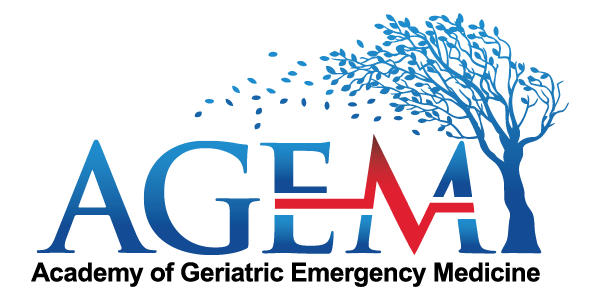AGEM Author Spotlight March 2023
Home
/
About SAEM
/
Academies, Interest Groups, & Affiliates
/
AGEM
/
About AGEM
/
AGEM Author Spotlight March 2023
Published Work by AGEM Member: Ula Hwang, MD, MPH, FACEP Professor of Emergency Medicine at the Yale School of Medicine

Dissemination and implementation of age-friendly care and geriatric emergency department accreditation at Veterans Affairs hospitals
https://doi.org/10.1111/acem.14665
Summary:
My interest in improving emergency care for older adults began when I was a resident. Over 20 years ago, during training, when I picked up charts for patients, I would often see patients from the waiting room who had been there for 10 hours. 10+ hours in the waiting room. I was alarmed by our ability to provide quality and timely care in the healthcare safety net, the emergency department. What many in the ED suspected at the time, and now we know with evidence, is these delays in emergency care are from crowding in our overflowing hospitals and healthcare systems. By a miracle, this patient was still in the ED, patiently waiting for any medical care – because she had no other place to go.This patient also happened to be young and was able to wait a long time to be seen. This had me worry and wonder about our older vulnerable patients who could not sit for 2, 4, 10 plus long hours waiting to be seen in our fraying healthcare safety net. This is what drives my passion to focus both my clinical care and research career to advocate for, protect, and evaluate how we can do better for our older adults in the fast-paced, often chaotic environment of the ED. My goal is to improve the emergency care that older adults receive by identifying ways we can pivot our emergency care model to address their special care needs. Older adults present to the ED with functional and cognitive limitations secondary to their medical conditions and aging, with frailty and psychosocial needs that are different from younger adults. More often than not, they present with clinical complaints and conditions atypical from what we are traditionally trained with emergency care. In the crowded ED environment that is diagnoses and disposition driven, this care may not be well suited to older adults who present with complex chronic conditions overlayed on their now acute conditions.
The VA is the ultimate healthcare setting where my commitment to improving geriatric emergency care and building the evidence behind how geriatric emergency care can make a difference. Here, VA ED’s see more older patients than any other EDs, where more than half (50%) of the Veterans seen in VA EDs are older than 65 years in age. I was thrilled by the opportunity to join the James J. Peters VAMC Geriatric Research, Education and Clinical Center (GRECC) (normally a department for geriatricians and palliative medicine clinicians and allied health professionals). I am honored to be the first emergency physician in the country to have an appointment at a GRECC (since 2008), and am proud of the partnerships we are building across the entire VA healthcare system. More and more EM physicians are now becoming affiliated with GRECCs as we work together to advance and optimize geriatric emergency care. The National EM program and Office of Geriatrics and Extended Care have now made it a priority to have all VA EDs incorporate geriatric emergency care practices and seek GED Accreditation.
With my VA Geriatric ED Co-leads, Drs. Luna Ragsdale and Colleen McQuown, and APP Erica Gruber, over the last 2 years we have been supporting and guiding VA EDs to improve the quality of geriatric emergency care for older Veterans. We are more than half way there, with over 70 of the 110 VA EDs adding geriatric emergency care to their quality improvement initiative. The AGEM spotlight paper on "Dissemination and implementation of age-friendly care and geriatric emergency department accreditation at VA hospitals" is a glimpse of this early work.
Bio:
